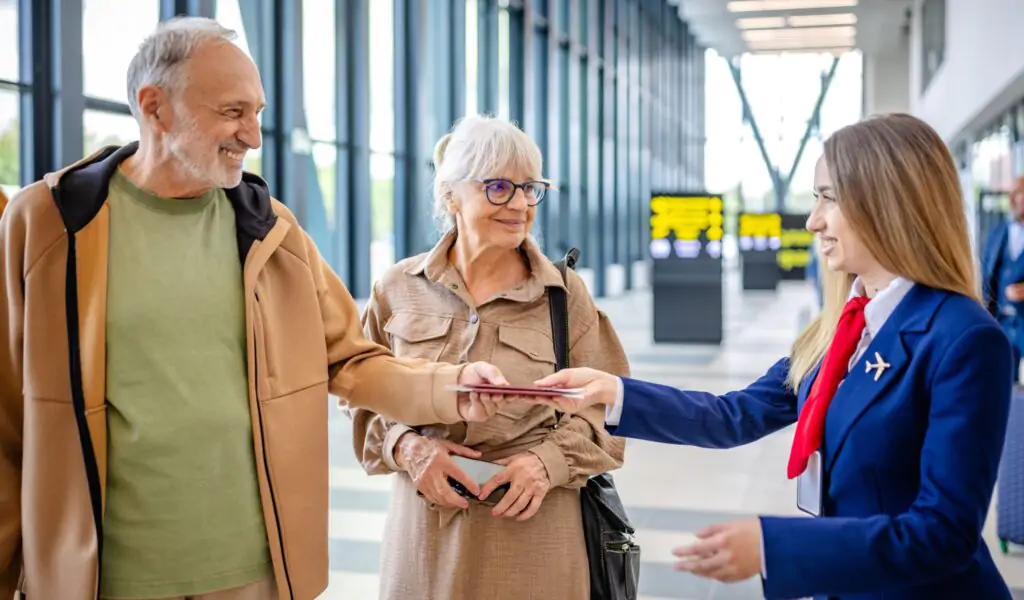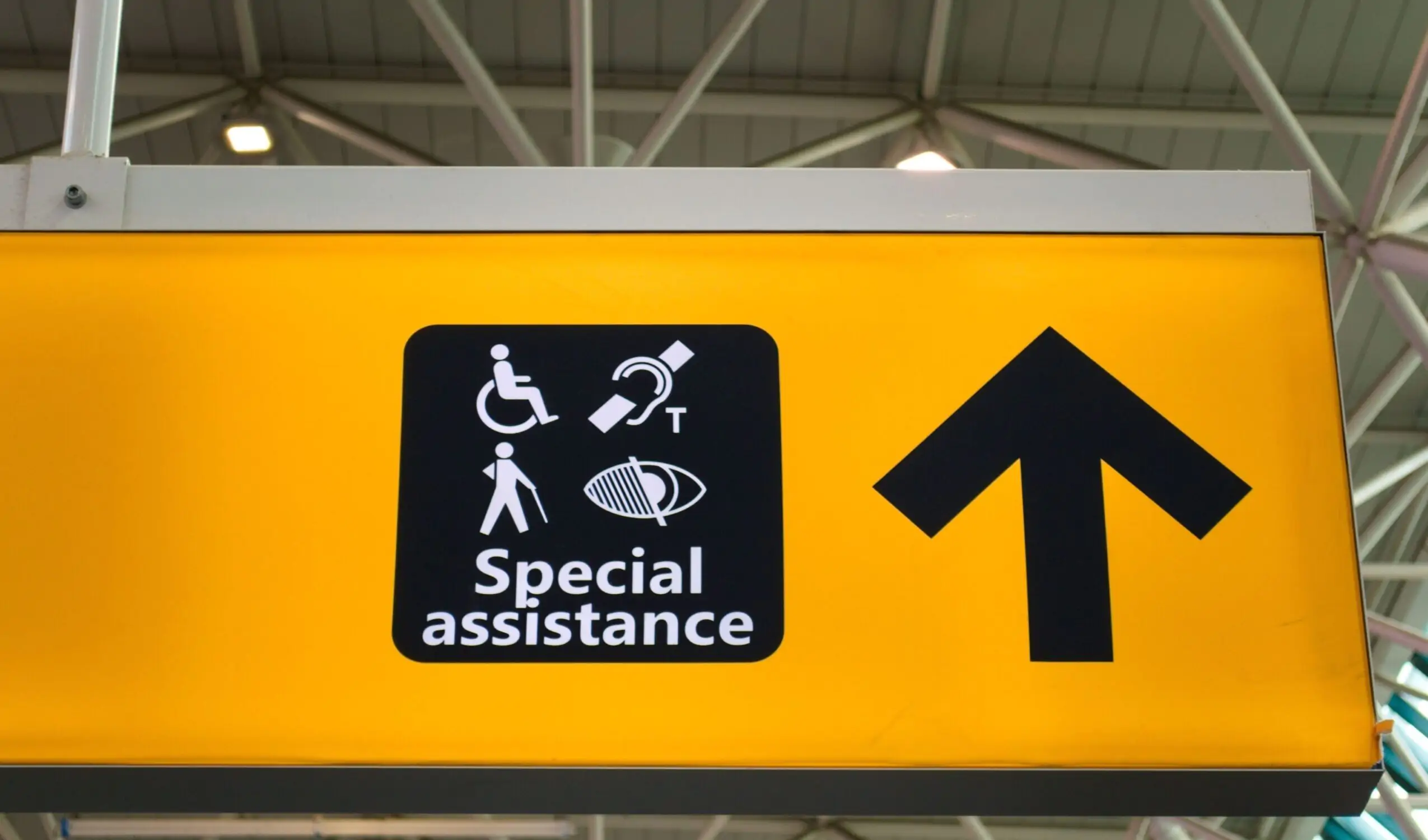Travelling can bring so much joy, but for some people, particularly those living with hearing loss, it can be challenging. Around 11 million people across the UK experience some level of hearing loss and it’s most common among those aged 60–69. So it’s something many of us may encounter as we get older.
But travelling with hearing loss doesn’t have to be difficult. Thanks to modern technology, accessible accommodations, and a growing awareness of communication needs, exploring the world is more possible now, more than ever. Whether you use hearing aids, sign language, or lip reading, the right preparation can make all the difference.
That’s why we’ve put together this handy guide to help you or anyone you know with hearing loss make the most of their journey and enjoy a smooth travel experience.
Planning is key
Research your destination
Whether you’re planning to explore cityscapes, or enjoy a quiet getaway in the countryside, having the right information can make all the difference.
Look out for features such as:
- Captioning in public spaces
Identifying inclusive venues makes it easier and helps you enjoy your trip. If you’re planning on visiting museums, tourist attractions, or other cultural landmarks, find out whether they provide captioning for any audio guides or video presentations.
- Hearing loop systems
For those who are hard of hearing, places like transport hubs, theatres, or other busy venues often provide hearing loop systems or assistive listening devices to make things easier. Keep an eye out for the hearing loop symbol (a blue ear icon with a “T”) or take a moment to check the venue’s accessibility details online before you go.
- Tours with sign language or transcripts
Popular UK destinations like London, Edinburgh, and Manchester have made big strides in improving accessibility. Many attractions in these cities now clearly list their services online, so it’s worth checking in advance to see what’s available and whether it suits your needs.
If you’re planning to take a guided tour, it’s good to know that many now offer ways to make things easier for people with hearing loss. You’ll often find options such as sign language interpreters, written transcripts or captioned video guides.
- Accessible accommodation features
If you’re looking for a place to stay with hearing loss in mind, many hotels now offer helpful features to make your stay more comfortable. Visual fire alarms that flash brightly in an emergency are now common in modern hotels, along with doorbells that use light signals to let you know when someone’s at the door.
You’ll also find assistive listening devices in some reception areas. By amplifying conversations, they help make check-in and other interactions easier. When booking online, you can often filter by accessibility features on sites like Booking.com and Airbnb.
Packing tips for people with hearing loss
Accessories to pack
To keep your hearing aids in good shape, it’s a good idea to pack a few essentials. Here are a few must-have accessories to pop into your bag.
- Extra batteries or a charging case – it’s always advisable to pack sufficient batteries or a fully-charged portable case to ensure your hearing aids stay powered all the time.
- Waterproof or water-resistant hearing aids – planning to enjoy outdoor adventures or water-based activities on your trip? Make sure to pack hearing aids that can handle wet conditions.
- Sturdy, protective travel case for your hearing aids – a durable case adds extra protection for your hearing aids and remains safe from any accidental damage during transit.
- Cleaning tools – why not pack a small cleaning kit to keep your hearing aids clean and maintain performance on the go?
Emergency communication tools
If you can’t easily communicate while travelling, having an alternative way to get your message across can really help. Consider carrying these accessories with you:
- Live transcribe or text-to-speech apps on your smartphone – live transcription apps, like Google Live Transcribe and others, will help you by converting spoken words into text in real-time.
- Pre-written message cards for common travel phrases – consider carrying cards with essential phrases that can help you communicate quickly, especially in emergencies or when dealing with different languages.
- A notepad and pen for written communication – a simple way to write down messages or respond to any questions, no matter where you travel.
- Save an emergency contact list digitally and in hard copy – keep a list of important phone numbers close at hand by saving them on your devices as well as on hard copy.
Medical information
Wearing a medical ID bracelet or carrying a hearing loss alert card can be a lifesaver in an emergency. These items can help others respond quickly and identify a hearing impairment or understand important medical information.
Essential transport tips
Getting around is often simpler when you plan ahead. You can make your next trip more accessible by:
- Using transport apps with real-time visual updates – these apps provide visual representations of audio announcements, making sure you stay informed throughout the journey. They also include transcription of announcements and visual alerts for approaching stops.
- Looking for transport providers that offer visual or text-based announcements –when booking your tickets, look for airlines, trains, or buses that provide visual or text-based updates. This will help avoid missing gate changes or delays during your trip.
- Informing train or airline staff about your hearing needs – if you have hearing loss, remember to inform the transport staff when you arrive. They may provide you with personalised support and additional resources available to you.
- Choosing seats close to visual screens or near staff – seats closer to a visual monitor or staff will make it easier to follow alerts or speak to a member of staff during your trip.
- Wearing a sunflower lanyard for extra support – if you’re travelling through a UK airport, wearing a sunflower lanyard will discreetly indicate to people (transport staff and others) that you may need extra help due to a hidden disability.
At the destination
Once you’ve arrived at your destination, the adventure truly begins. But before you get into all the fun, it’s worth taking a moment to explore the accessibility support available for people with hearing loss. Here are a few things to consider:
- Dining – pick a venue that has accessibility features like picture-based menus, apps to place orders via your smartphone, or comfortable seating where you can sit face-to-face, helping make the experience easier.
- Trained staff – a lot of restaurant staff are trained to support people with different needs and may help you by speaking clearly or finding alternative ways to converse.
- Basic phrases in local languages – learn a few basic phrases like “I am deaf” or “Can you write that down?” in the local language to make interaction easier. Tools like Google Translator will also allow you to pre-save key phrases for offline use.
Travelling with hearing loss? Don’t let it hold you back
Travelling with hearing loss doesn’t mean you have to miss out on incredible experiences. With the right preparation and planning, your trip will be easy and memorable as you imagined.
Key tips to keep in mind:
- Plan your itinerary with accessibility focus.
- Pack the hearing tools and apps you rely on.
- Clearly communicate your needs to travel and hospitality staff.
Before you set off, make sure you’ve got the right travel insurance if you’re experiencing hearing loss. Look for a policy that covers pre-existing medical conditions and has your back if anything unexpected comes up. Get a quote with Avanti today.




